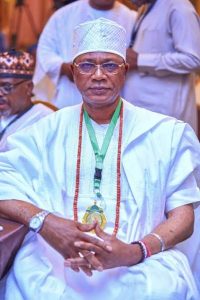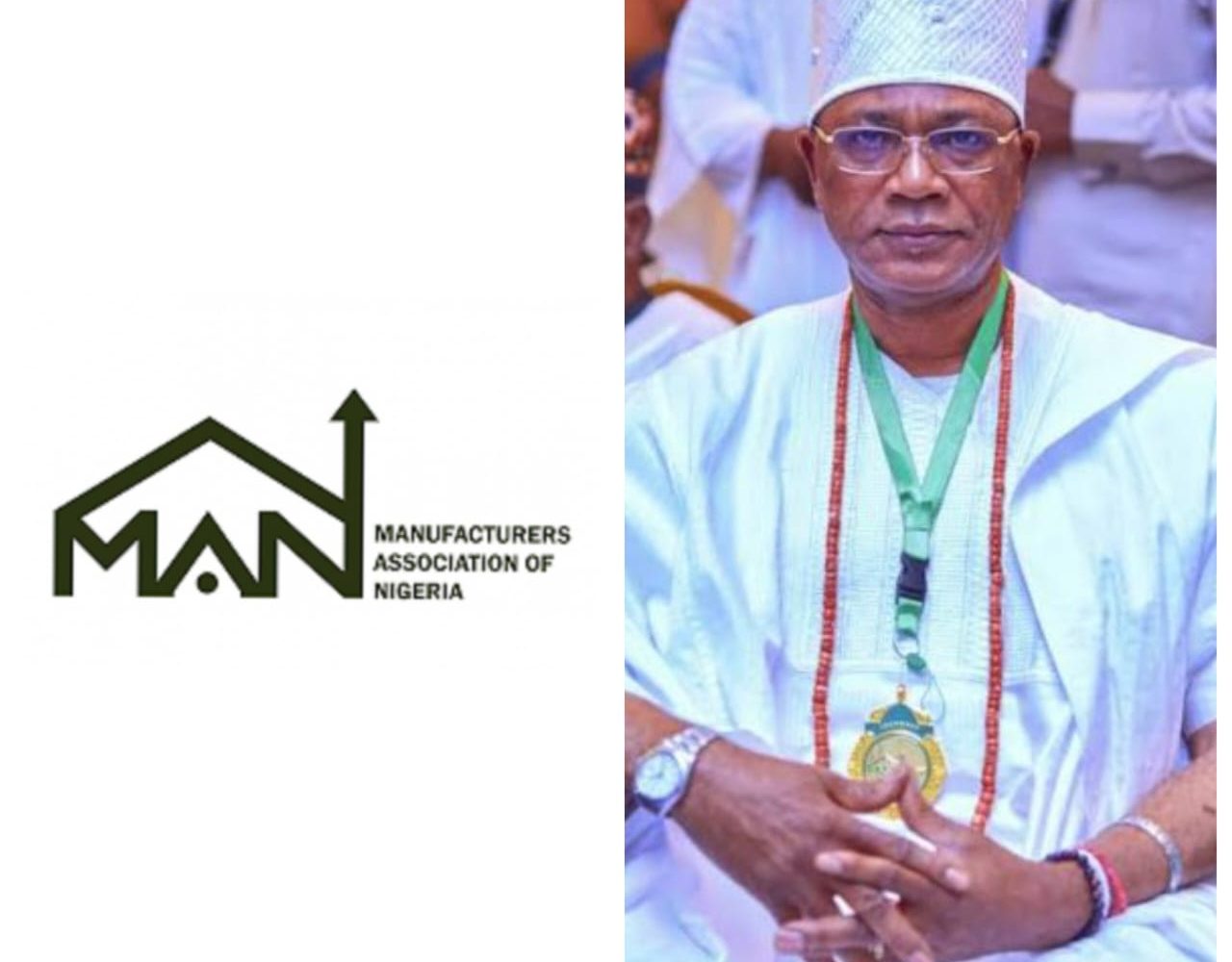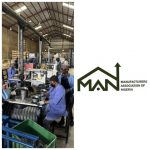By Barnabas Esiet.
The Manufacturers Association of Nigeria (MAN) has been at the forefront of promoting the interests of manufacturers and addressing the challenges facing the sector. Here’s a review of MAN’s activities in 2024:
January: Predicting a Struggling Manufacturing Sector
MAN predicted a struggling manufacturing sector globally in 2024. The association recommended patronage of locally produced goods, effective use of fuel subsidy removal funds, and overhaul of the power sector to enhance growth.
February: Opposing NAFDAC’s Proposed Ban
MAN faulted NAFDAC’s proposed ban on production of alcoholic beverages packaged in sachets and PET bottles less than 200ml, arguing that it would violate private investors’ rights.
March: New Appointment and Commending the Federal Government
MAN welcomed Segun Alabi as Assistant Director, Corporate Affairs & Communications. The association commended the Federal Government for suspending the implementation of the Expatriate Employment Levy (EEL).

April: Calling for a Fair Environment
the Association called on regulators and the general public to create a fair and objective environment that protects the interests of consumers and upholds the integrity of manufacturers.
Reacting to negative impacts of social media defamation, MAN emphasized the importance of safeguarding manufacturers from such exposure.
In the same period, the Organised Private Sector of Nigeria, OPSN, consisting of: MAN, NACCIMA, NECA, NASSI, and NASME, issued a statement expressing concerns over the threat to business survival posed by the sudden increase in electricity tariffs. The organisation called for Suspension of 200% Electricity Tariff Hike in Nigeria.
May: Concerns Over Monetary Policy Decisions
MAN expressed concerns over the adverse impact of Nigeria’s Monetary Authority’s policy decisions on the manufacturing sector and the overall economy.
The President of MAN, Francis Meshioye, noted that the Monetary Policy Committee (MPC) and the Central Bank of Nigeria (CBN) have been implementing policies that exacerbated macroeconomic instability and paralyzed manufacturing activities over time.
He emphasized the need for a thorough assessment of the impact of monetary policy decisions on the real sector and the economy as a whole.

June: Summit on Manufacturing
MAN announced a three-day summit organized in partnership with the Presidency, Ministry of Industry, Trade and Investment and the National Institute for Policy and Strategic Studies.
The summit with the theme “Rethinking Manufacturing” aimed to address the challenges facing the manufacturing sector in Nigeria and explore innovative strategies to enhance productivity, competitiveness, and sustainability.
Also during the month, MAN raised concerns about the state of insecurity in the country while condemning the kidnap of the Chief Executive of Fouani Group.
July: Manufacturers Summit and Minimum Wage Payment
MAN teamed up with the Federal Government and stakeholders to host the Manufacturers Summit.
The Summit themed, “Rethinking Manufacturing” was held in Abuja at the prestigious State House Banquet Hall.
The event offered a platform for critical discussions on overcoming the binding constraints that limit the performance of the manufacturing sector in the country.
Also in the same period, MAN set conditions for the organized private sector to comply with the new minimum wage payment of N70,000.
It also sought government assistance to address the challenges facing businesses in the private sector.
The Association called for caution over unsubstantiated allegations of poor quality diesel products from the Dangote Refinery, which have been debunked.
MAN emphasized the need for regulatory agencies to promote a conducive business environment for local investments, like the Dangote Refinery, to thrive.
During the same month, the Association in a statement signed by its Director General, Segun Ajayi-Kadir, urged the government and citizens planning a nationwide protest to engage in constructive dialogue to address the issues affecting public welfare.

August: Condemning CBN’s Failure
MAN condemned the Central Bank of Nigeria’s (CBN) failure to settle outstanding foreign exchange (forex) forward contracts worth billions of dollars.
The breach of contract, according to MAN, exacerbated currency risk for businesses, leading to substantial financial losses and operational disruptions.
During the same month, MAN expressed concerns that the frequent hikes in the Monetary Policy Rate (MPR) were destabilizing manufacturing activities and stagnating Nigeria’s economic growth.
The Association noted that continuous increases in MPR have tightened financial conditions for the productive sector, leading to higher borrowing costs and reduced access to capital.
September: Warning Against Petrol Price Hike
MAN warned about the negative impacts of the petrol price hike on the Nigerian economy.
It noted that the increase in price from ₦568 per litre to ₦855 per litre will have far-reaching consequences on various sectors, including transportation, goods, and services.
In the same period, the Association expressed concerns over the proposed ban on single-use plastics, citing potential economic implications for manufacturers, distributors, retailers, and consumers.
Also in September, MAN voiced its concerns regarding the Monetary Policy Committee’s decision to increase the Monetary Policy Rate (MPR) to 27.25%, citing potential negative impacts on the manufacturing sector.

November: Survey Report
MAN released its latest survey report, painting a grim picture of the country’s manufacturing sector in the first half of 2024.
According to the report, despite resilience in some sectors, the industry faced significant headwinds, including high operational costs, declining consumer demand, and rising inflation.
The report emphasized the need for policymakers to address the challenges facing the manufacturing sector.
December: Release on Nigeria’s Economy
MAN issued a release showing that in Q3 2024, Nigeria’s economy recorded modest growth of 3.46% compared to 2.54% in the same period of 2023. However, the manufacturing sector lagged behind with a growth rate of 2.18%.
According to the release quoting the Bureau of Statistics, the manufacturing sector was one of the least growing sectors during the period under review, with a growth rate of 2.18%.
MAN recommended several measures to address the issues affecting the manufacturing sector including creating special windows for providing single-digit interest rates to productive sectors.
It also recommended recapitalizing the Bank of Industry (BOI), enhancing credit information systems, and implementing the recommendations of the Presidential Fiscal Policy and Tax Reforms Committee.









Comment here